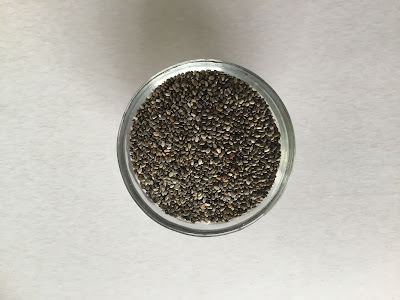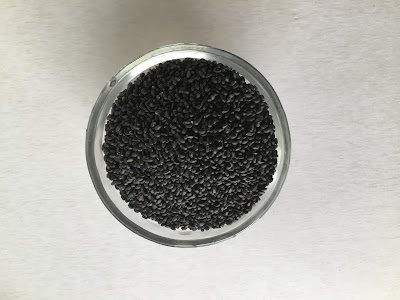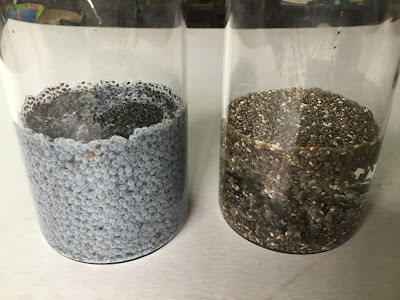Natural Sweeteners
 |
| Natural Sweeteners image |
We all know the truth about refined sugar and other artificial sweeteners. Sugar-reduction, sugar elimination and
sugar-free diet trend pretty high amongst dieters. The sweet taste considered
by Ayurveda as the most important of all the six tastes. By sweet, Ayurveda
means naturally sweet foods including milk, ghee, rice, wheat, and other grains
and legumes, as well as sweet fruits, dates, honey, jaggery, and raw sugar. These
are natural sweeteners that are healthy and tasty alternatives to refined sugar, high fructose corn
syrup, and artificial sweeteners.
Natural sweeteners can be used
effectively in moderation to provide the sweetness that most people crave. Here
are some Natural sweeteners as below:-
*Raw Honey: -
 |
| Natural Sweetener - Raw Honey image |
It is a true superfood and one of the favorites amongst you. Honey is a sugar secretion deposited in the honeycomb by bees. Raw honey is packed with enzymes, antioxidants, and vitamins. One tablespoon of raw honey has 64 calories and has less impact on glycemic load than a single banana. It is important to note that these are the benefits of raw honey. Once the honey has been pasteurized, it loses many of the health benefits that raw honey brings to the table. The darker the honey, has richer in flavor and the greater health benefits. Don’t cook raw honey, if you want to maintain as many of the nutrients in honey. So keep it away from the heat. You can drizzle it on breakfast cereals, over your sprouted grain toast, on yogurt, and for salad dressing. If you enjoy honey with your tea or coffee, wait until the drink becomes lukewarm to sip comfortably, and then add honey to taste.
*Dates: -
 |
| Natural Sweetener - Dates image |
*Jaggery: -
 |
| Natural Sweetener - Jaggery image |
Jaggery ( or gud/ gur) is made from unrefined sugar cane juice. It is obtained by boiling raw, concentrated sugar cane juice till it solidifies. Although jaggery is also made from the sap of coconut and date palm, the one made from sugar cane is the one that used most widely.
Jaggery has several
health benefits, including its ability to cleanse the body, aid in digestion
and provide good amounts of minerals. It helps boost resistance against
infections, hence building stronger immunity. Eating a piece of jaggery daily
can help women combat PMS symptoms including mood swings, menstrual cramps, and
abdominal pain. Jaggery provides energy over an extended time.
*Raw Cane sugar: -
 |
| Natural Sweetener - Raw Cane Sugar image |
Raw cane sugar is also a dehydrated cane juice. Raw cane sugar retained a bit more of the natural “impurities”, so it’s even a little darker and the molasses aroma and flavor. It is the ultimate natural sweeter for baking perfect cake, cookies, muffins, crumble and pies.
*Coconut sugar: -
 |
| Natural Sweetener - Coconut sugar image |
Coconut sugar has been trending of late coconut palm sugar has about 70-80 % sucrose and rich mineral content. It is extracted from the sap of coconut blooms, which then goes to evaporation. You can use this in any of your favorite recipes and in the same quantities as you would use normal sugar.
* Maple syrup: -
 |
| Natural Sweetener - Maple Syrup image |
The native of maple syrup in North America. Maple syrup is an outstanding source of minerals and rich with antioxidants. It is heat stable, so you can use it in virtually any application. Add it to marinades, glazes sauces and use for baking. You can use it to sweeten homemade granola and tea or coffee.
*Molasses: -
 |
| Natural Sweetener - Molasses image |
Organic blackstrap molasses is highly nutritious, rich in minerals and vitamins. All molasses is obtained from raw cane sugar, beet juice, pomegranate, dates, etc. It can be used in baking, sauces, homemade vinaigrette, and for yeast production.
*Barley Malt: -
 |
| Natural Sweetener - Barley Malt image |
It has produced from sprouted barley. When seeds sprout, some of the carbohydrates get converted to simple sugar. It looks dark brown, thick and sticky and tastes ‘malty’.
*Stevia: -
 |
| Natural Sweetener - Stevia image |
Stevia is a plant-based sweetener, extracted from the leaves of the plant Stevia rebaudiana. It has 30 to 150 times the sweetness of sugar, available as drops, dissolving tablets and baking blends.
There
are so many other natural sweeteners still, we can add in this list like brown
rice syrup, licorice, raisin, and all sweet fruits. Note that you should
maintain quantity over qualities for any sweeteners. One of the keys to moving
over to a healthy lifestyle is migrating from refined sugar to natural
sweeteners.









